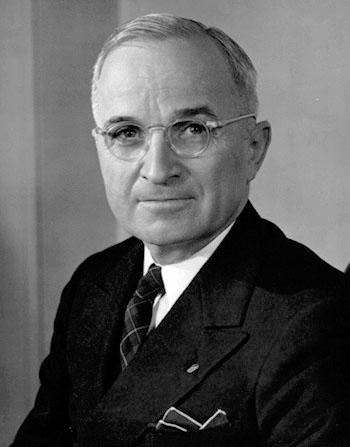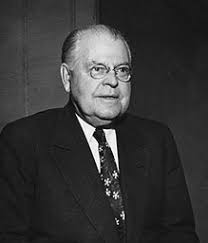
August 27, 1950
Dear Warren:
As I told you on the telephone this morning I want to congratulate you on your able presentation of the views of the United States Government in the Security Council of the United Nations from the first onset of the aggression against the Republic of Korea. Throughout the entire course of the proceedings you have represented this Government with great effectiveness and in full accordance with my directions.
The letter which you addressed to the Secretary General of the United Nations on August 25 on the subject of Formosa admirably stuns up the fundamental position of this Government as it had been stated by me on June 27 and in my message to the Congress on July 19. You have clearly set forth in that letter the heart and essence of the problem. You have faithfully set down my views as they were then and as they are now.
To the end that there be no misunderstanding concerning the position of the Government of the United States with respect to Formosa, it may be useful to repeat here the seven fundamental points which you so clearly stated in your letter to Mr. Lie.
(1) The United States has not encroached on the territory of China, nor has the United States taken aggressive action against China.
. . . . .
(4) The action of the United States was expressly stated to be without prejudice to the future political settlement of the status of the island. The actual status of the island is that it is territory taken from Japan by the victory of the Allied forces in the Pacific. Like other such territories, its legal status cannot be fixed until there is international action to determine its future. The Chinese Government was asked by the Allies to take the surrender of the Japanese forces on the island. That is the reason the Chinese are there now.
. . . . .
source: https://www.trumanlibrary.gov/library/public-papers/223/letter-ambassador-warren-austin-restating-us-position-formosa

Commentary & Analysis
The "neutralization of the Straits of Formosa" was deemed to be in the US's best interests following the start of the Korean War on June 25, 1950, according to then-US President Harry Truman. In order to avoid any military conflict between the Republic of China and Red China, he dispatched the US Navy's Seventh Fleet into the Taiwan Strait.
President Truman's actions must be understood vis-a-vis Taiwan's legal status in 1950. Put simply, if Taiwan had already been recognized as Chinese national territory, the Taiwan Strait would constitute an "internal sea" of China. There would be no legal basis for the president to direct the Seventh Fleet into the Strait.
In his letter, President Truman stressed:The United States has not encroached on the territory of China, nor has the United States taken aggressive action against China.Such a remark clearly shows that the the United States did not recognize any transfer of Taiwan's territorial sovereignty to China as a result of the Japanese surrender ceremonies in late October 1945. The surrender ceremonies only marked the beginning of the military occupation.
International law states that military occupation does not transfer sovereignty.

Warren Austin
2nd United States Ambassador to the United Nations
In office
January 14, 1947 – January 22, 1953
in the administration of President Harry Truman
[English version] https://www.twdefense.info/trust3/struman2.html
[Chinese version] https://www.twdefense.info/trust3/struman2ch.html